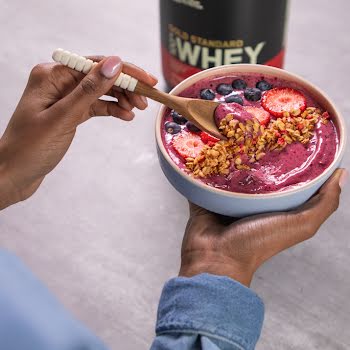UTIs explained: 23 burning questions about urinary tract infections
By Grace McGettigan
17th Jul 2021
17th Jul 2021
Do you suffer from cystitis, UTIs or kidney infections? We speak with Dr Deirdre Fanning, a Consultant Urologist at the Bon Secours Hospital Limerick & Tralee, to understand the ‘what/whys and hows’ of this common ailment.
If you’ve ever had cystitis or a kidney infection, you’ll understand the burning, need-to-pee sensation all too well – and you’re not the only one.
Urinary tract infections (also known as UTIs) are the second most common type of infection in the body, and 80% of women will develop one during their lifetime (with 20-30% of those having recurrent episodes).
But what actually causes a UTI and how many types of infection are there? Why do they often develop after sex, and what can we do to prevent them? We asked Deirdre Fanning, a consultant urologist at the Bon Secours Hospital Limerick & Tralee, to talk us through our many questions when it comes to urinary tract health.

Symptoms
Is there a difference between a UTI, cystitis and kidney infection?
Cystitis is a lower urinary tract infection, whereas pyelonephritis is an upper urinary tract infection involving the kidneys. The term UTI can refer to either.
Pyelonephritis is generally associated with pain over the region of the kidney (just beneath the rib cage) and a high temperature.
What are the symptoms of a UTI?
Increased frequency and urgency of urination, as well as the passage of small volumes of urine, are common symptoms of a UTI.
Dysuria (burning and stinging in the urethral area), Haematuria (blood in the urine) and Nocturia (passing urine more than once at night) are also common.
Back pain, fever and nausea can also occur.
Causes
Are bacteria responsible?
E.coli is the causative bacteria in the vast majority of UTIs, suggesting a bowel-origin to the infection. UTIs are much more common in women than in men, as the opening of the bladder and the opening of the bowel/anus are so close together.
Any issue with bowel habit, particularly constipation and haemorrhoidal disease are also strong risk factors.
Find out about prevention techniques below.
Why did I get a UTI after sex?
Unfortunately, female anatomy is a factor here again facilitating the spread of bacteria. Some women note that particular sexual positions and acts can increase their UTI risk. For example, any position where the penis traverses the anus (or any peri-anal activity) can contribute to UTI development.
Avoidance of anything artificial in the vaginal area is preferable; such as coloured or flavoured condoms, novelty lubricants and spermicidal gels.
Are there other causes?
Diabetes, kidney stones, congenital urology abnormalities, recent surgery or catheterisation can all be causative factors for UTI development.
What about my personal hygiene?
I have met many young women who have been very angered by suggestions that their personal hygiene was a causative factor in their development of a UTI. Personally, I have next-to-never had cause to suggest this.
Diagnosis
How do you know it’s time to go to the doctor?
Don’t delay attendance to your GP. It is much easier to treat a developing UTI than to deal with well-established symptoms.
What does it mean if you see blood in your urine?
If blood is seen, your infection will be called ‘haemorrhagic cystitis or haemorrhagic UTI’. It is actually quite common, and even though very frightening, does not mean that anything sinister is present within the bladder or kidneys. When blood is seen, your GP shall arrange for a urologist to review you.
How are UTIs diagnosed?
UTIs are diagnosed when patients have characteristic symptoms (described above) and abnormalities on a dipstick urinalysis test. These abnormalities can include the presence of white cells, nitrites and blood.
Treatment
Do I need antibiotics?
When your GP diagnoses a UTI, they will prescribe an ’empirical’ course of antibiotics (this means the antibiotic has good, historical effectiveness at treating UTIs).
Why has my GP called to say I should swap to a different antibiotic?
If your urine sample is examined in a laboratory, a culture and sensitivity report can state the exact bacteria causing the UTI, as well as advise which antibiotics should effectively treat it.
Because of this, women will occasionally receive a call from their GP’s surgery advising to switch to a more appropriate antibiotic, if the empirically prescribed antibiotic has been shown to be ineffective.
It is also important to note that each and every UTI suffered by an individual woman will not always respond to the same antibiotic.
Does taking baking soda help for UTIs?
No, and it should not be recommended. Self-treatment with baking soda as a home remedy may also mask or delay medical care; thereby complicating or exacerbating an existing medical problem.
Recurring UTIs
What happens if I keep getting UTIs on a regular basis?
Recurrent UTIs in women are defined as suffering from two UTIs in six months, or three in one year. If you fall into this category, your GP shall refer you to a consultant urologist for an assessment of your urinary tract.
What does the consultant urologist do?
The assessment will include a detailed clinical examination of your abdomen and pelvic area. It will thereafter include assessment of a urine sample in the laboratory; a simple non-invasive ultrasound scan of your kidneys; and potentially a camera test of your bladder, known as a cystoscopy.
Nowadays, a cystoscopy is done while women are awake using a local anaesthetic gel applied to the opening of the bladder. It literally takes three to four minutes and is very well tolerated. If necessary, biopsies can be taken at the time of cystoscopy.
Prevention – supplements
Do cranberry supplements help to prevent UTIs?
There is no clear scientific evidence to support the use of cranberry, either for the prevention of or in the treatment of UTIs. Women will probably continue to use it because of anecdotal evidence.
Can you take cranberry supplements when pregnant?
Yes, it is one of the most commonly taken supplements during pregnancy. A large Norwegian study published in BMC Complementary and Alternative Medicine 2013 assessed for any negative impact of cranberry on pregnancy and ultimately reported it as safe.
Prevention – fluid intake
Do you recommend any other preventative measures?
Maintaining good hydration is important. It is recommended to drink two litres of fluid per day; this is not just water but all your consumed fluids combined.
Is there such a thing as drinking ‘too much’ water?
Yes. Drinking in excess of this can lead to the development of ‘overactive bladder’ symptoms; including frequency and urgency of urination, with potential leakage of urine when racing to the bathroom.
While it is beneficial to drink in the region of two litres of fluid (ideally water) when you have a UTI, drinking in excess of this on a daily basis can cause annoying urinary frequency and potentially lower abdominal pressure.
Is fizzy water bad for those who are prone to UTIs?
Carbonated/ fizzy drinks can irritate the lining of the bladder. They can contribute to overactive bladder symptoms.
Any food or drinks I should avoid?
None in terms of reducing your UTI risk, but maintaining a healthy, balanced lifestyle is paramount.
When you have a UTI you should avoid caffeinated products (including tea, coffee, green tea and Coca Cola); carbonated products (all fizzy drinks, including fizzy water); high citric acid products, such as oranges/ lemon/ lime/ grapefruit/ pineapple and kiwi; as well as alcohol.
Prevention – intimate health
What about toilet and sexual hygiene?
Good toilet and sexual hygiene practices are key. Returning to the advice of our childhoods, wiping front-to-back after bowel movements is important.
Passing urine and washing the vaginal area with plain tap water before (and as soon as is appropriate after) sexual intercourse can also play a role in reducing UTI risk.
Some women note that particular sexual positions and acts can increase their UTI risk. For example, any position where the penis traverses the anus (or any peri-anal) activity can be contributory to UTI development.
Would you recommend any specific underwear?
Wearing cotton underwear allows more air to circulate in the vaginal area. This can be advantageous as bacteria multiply in warm, wet areas.
Dr Deirdre Fanning is a Consultant Urologist at the Bon Secours Hospital Limerick & Tralee; contact details available at bonsecours.ie. If you’re worried about your urinary tract health, always speak to your GP.
























